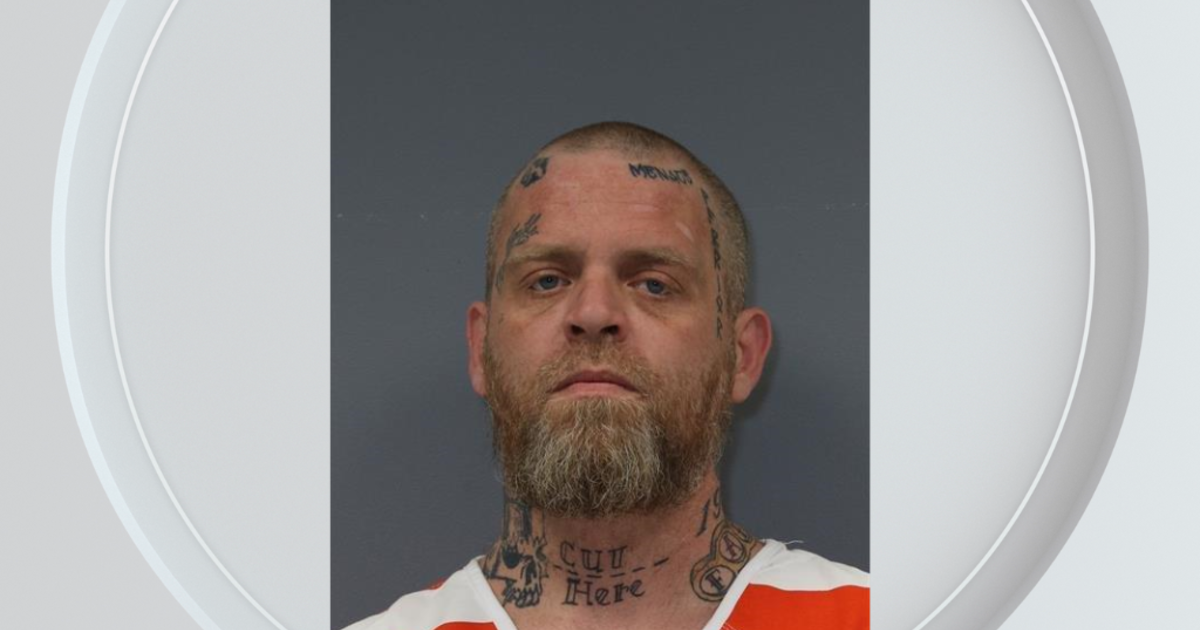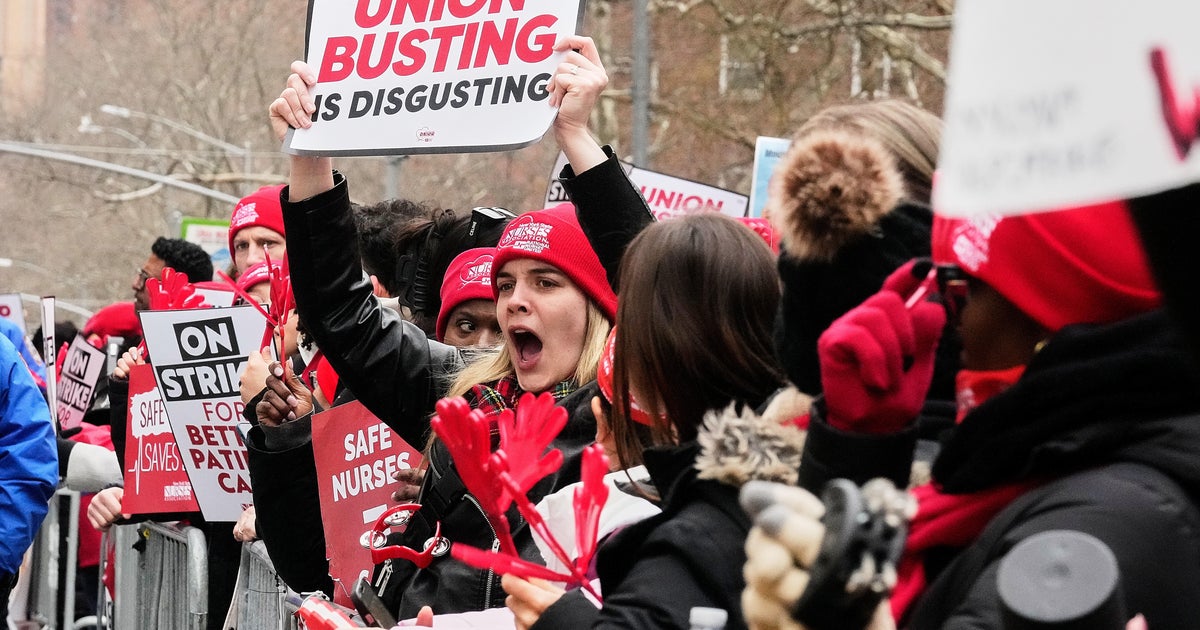Suspected Arms Trafficker Flown To NYC
NEW YORK (AP) -- Russian arms trafficking suspect Viktor Bout was flown from Bangkok to New York on Tuesday in a chartered U.S. plane, extradited in manacles despite a final outraged push by Russian diplomats to persuade Thailand to release him, the U.S. attorney's office said.
Bout's extradition followed a bruising diplomatic tug-of-war between the U.S. and Russia that shows no sign of letting up and could jeopardize cooperation on arms control, nuclear weapons curbs and the war in Afghanistan.
A former Soviet military officer and air cargo executive nicknamed the Merchant of Death by critics, Bout (pronounced boot) had been accused of arming failed states and insurgents across the Third World since the 1990s.
U.S. Attorney General Eric Holder said Bout was considered "one of the world's most prolific arms traffickers."
"Viktor Bout has been indicted in the United States, but his alleged arms trafficking activity and support of armed conflicts in Africa has been a cause of concern around the world," Holder said in a statement. "His extradition is a victory for the rule of law worldwide."
Thailand's government ordered Bout placed in American custody Tuesday, 20 months after his March 2008 arrest in a sting operation led by U.S. narcotics agents. Since then, the wealthy businessman -- estimated by the U.S. to be worth $6 billion -- had been in a Thai jail.
Bout arrived late Tuesday night at the Stewart Air National Guard Base in Newburgh, U.S. attorney's office spokeswoman Edeli Rivera said.
Bout, wearing handcuffs and looking calm when he got off the plane, was given a helmet to wear before being put in an armored vehicle with about five other people. He then was driven from Newburgh, about 60 miles north of New York City, to downtown Manhattan's Metropolitan Correctional Center.
The MCC has housed the likes of Wall Street swindler Bernard Madoff and Gambino crime family scion John "Junior" Gotti and terrorism defendants including blind sheik Omar Abdel-Rahman, who was sentenced to life in prison for plotting to blow up five New York landmarks and assassinate Egypt's president.
In Moscow, Bout's lawyer and brother voiced alarm that American officials would pressure him into incriminating himself or others. The attorney, Viktor Burobin, said the U.S. had already offered Bout better treatment in custody in exchange for his cooperation. And Sergei Bout, a key figure in his brother's global air cargo empire, warned that the U.S. would "make some kind of injections to get whatever they want out of him."
Bout, who says he's a legitimate businessman, faces U.S. charges accusing him of having a gunrunning empire -- a prosecution that American officials describe as a milestone in international efforts to cripple the flow of illicit weapons that fuel conflicts around the world. He was scheduled to be presented in Manhattan federal court Wednesday afternoon before U.S. District Judge Shira A. Scheindlin.
The Russian Foreign Ministry reacted with strong words after Bout was hustled from a Thai prison to a waiting jet early Tuesday. Russia branded the extradition "unlawful," prompted by "unprecedented political pressure from the USA."
Thai police commandoes, clad in combat gear and masked by balaclavas, accompanied Bout to the tarmac at Bangkok's Don Muang airport. There, several Westerners wearing U.S. Drug Enforcement Administration jackets shepherded him onto the chartered jet.
Bout wore a bulletproof vest over a blue track suit. His wife, Alla Bout, had rushed to the prison with his Thai lawyer but was unable to see him before his departure.
The decision by Thai Prime Minister Abhisit Vejjajiva's cabinet came just four days before Saturday, when Bout would have been freed under an earlier court ruling.
In recent weeks, Russian diplomats have repeatedly pressed Thai officials to let that deadline pass, said former U.S. officials familiar with the case. They insisted on anonymity to describe the private deliberations.
In one high-profile meeting in Hanoi last month, the officials said, Russian Foreign Minister Sergei Lavrov warned U.S. Secretary of State Hillary Rodham Clinton that Russia's cooperation on anti-narcotics efforts in Afghanistan might be curtailed unless Bout was freed.
America's determination to bring Bout to trial did not waver, former and current officials said.
Lavrov said in remarks broadcast on Russian television Tuesday that the Thai government's decision was "an example of glaring injustice."
President Barack Obama's administration insisted its efforts to rebuild relations with Moscow could weather any turbulence caused by Bout's extradition. Department of State spokesman P.J. Crowley acknowledged possible "ripples" in relations with Moscow but added that any concerns could be managed.
That confidence could be tested as early as Saturday, when Obama and Russian President Dmitry Medvedev attend a Russia-NATO meeting in Lisbon, Portugal.
Bout has long been targeted by U.N. and U.S. sanctions aimed at blocking his financial activities and restricting his travel.
Bout has been accused of supplying weapons that fueled civil wars in South America, the Middle East and Africa, with clients ranging from Liberia's Charles Taylor and Libyan leader Moammar Gadhafi to the Taliban government that once ran Afghanistan. He was an inspiration for an arms dealer character played by Nicolas Cage in the 2005 film "Lord of War."
His arrest came at a Bangkok luxury hotel after a DEA sting operation using informants who posed as officials of the Revolutionary Armed Forces of Colombia, also known as the FARC, classified by Washington as a narco-terrorist group.
Bout, 43, was charged with conspiracy, accused of agreeing to smuggle missiles and rocket launchers to the FARC, and conspiring to kill U.S. officers or employees. If convicted, he could face a maximum penalty of life in prison.
Successful U.S. prosecution could set a precedent for bringing other international crime kingpin suspects to trial, showing "that we would not tolerate international scofflaws," said Juan C. Zarate, a former top Bush administration national security adviser who is now a senior fellow at the Center for Strategic and International Studies.
Law enforcement experts say his prosecution would be built around the federal agents' extensive use of informants and judicially approved international wiretaps -- as well as Bout's own history as a transporter of arms and other cargos.
"It's going to be damning, especially the wiretaps," said Michael A. Braun, a former top DEA official and now managing partner of the Spectre Group International security firm. "The guy is not going to be able to say he didn't say these things because it's all down on tape."
Earlier this year, the U.S. filed new money laundering and wire fraud charges against Bout in an attempt to keep his extradition alive in Thailand in the event that a Thai appeals court ordered his release.
That move backfired and caused a new delay, and only an early October court ruling cleared the final path to extradition.
U.S. federal prosecutors planned a news conference for late Wednesday morning in New York.
(Copyright 2010 by The Associated Press. All Rights Reserved.)







